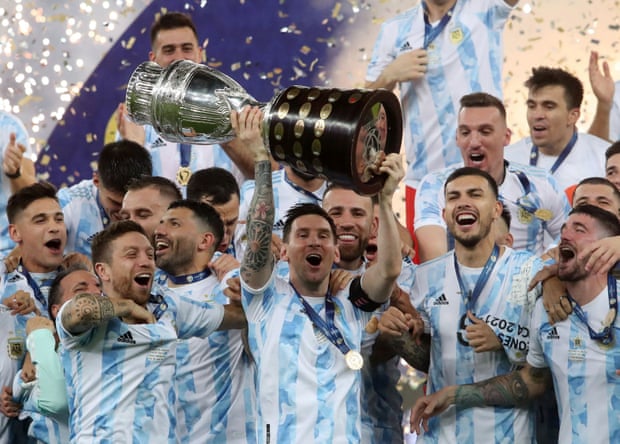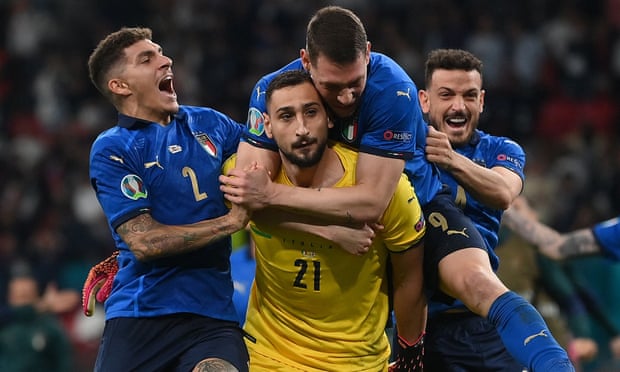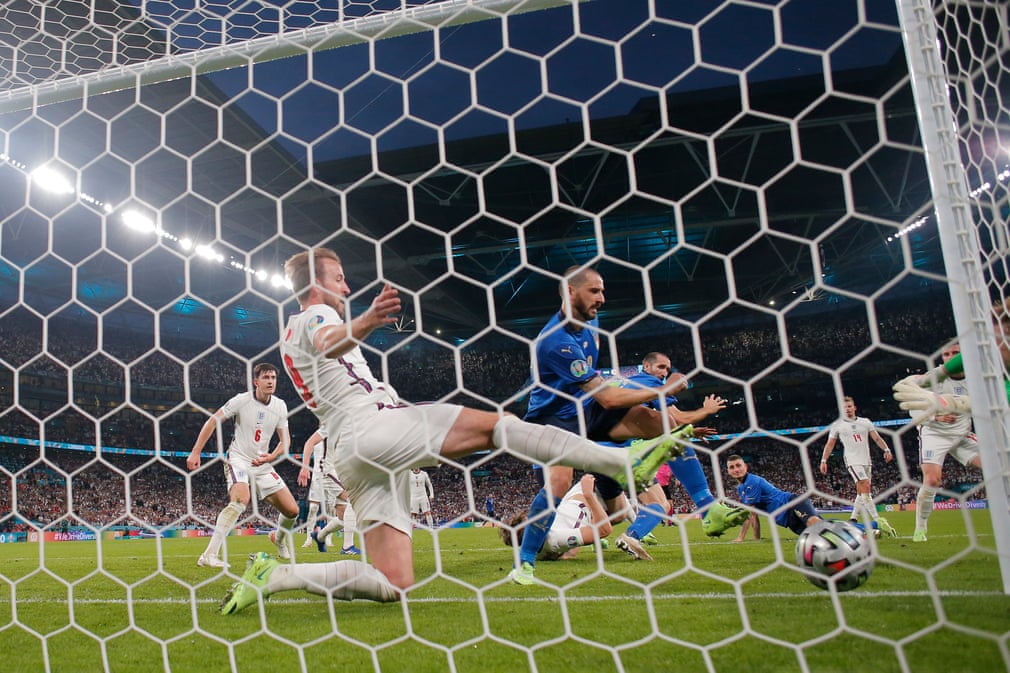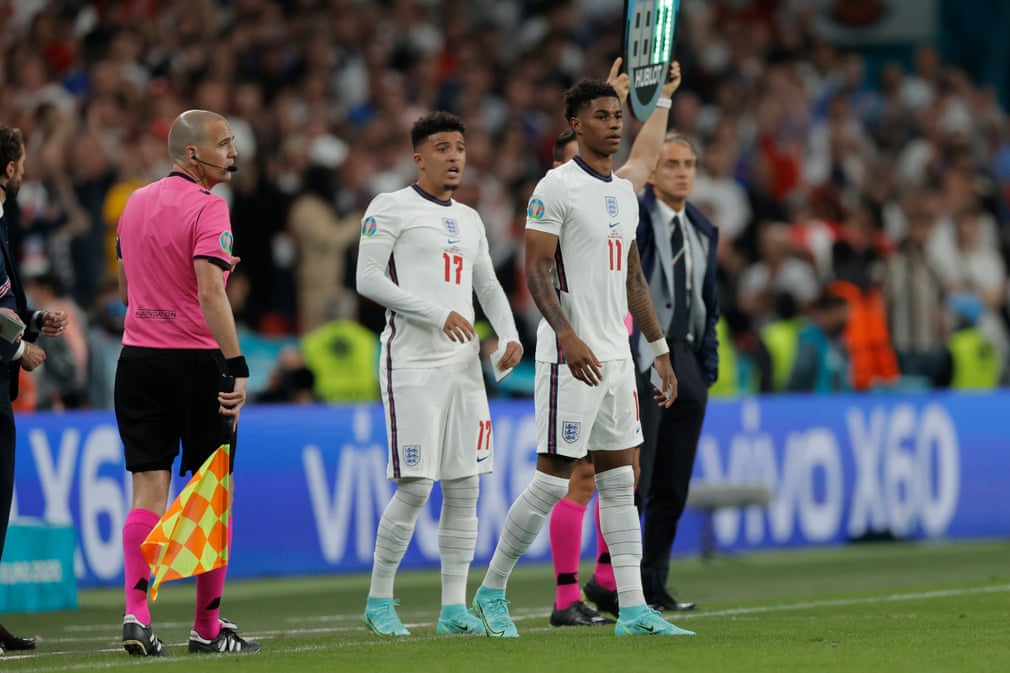Euro 2020 and Copa América: Current form and balanced team above big names and talent
Sadly I later discovered that there is much more to the beautiful game than I thought: economic interests of powerful, transnational corporations; political use of the games and their political symbolism. I will always remember the day of the Poland - Germany match at the Euro 2008 which I watched with some friends in a beach-side bar in Gdańsk. That day everyone in the bar sang the Polish national anthem and what followed was ninety minutes of violent behaviour and abusive language, especially towards David Odonkor, the only player of colour in the German squad. The potential of international games to bring the worst out of otherwise rather ordinary people - especially racism and nationalism, frightened me and ultimately put me off national anthems and flags forever.
Despite all that, I have watched all the major international tournaments since then. The football played has too often been disappointing and the performance of the best players shockingly poor but I still kept on watching the Euros, the World Cups and the Copa América. I am less emotionally-involved than before, as I don't favour any team as much as in my teenage years when I was a big fan of the Netherlands' national team. Of course I want the Polish team to do well and I keep my fingers crossed for Argentina and Uruguay and generally support the underdogs when they play against the best teams in the world. After quite a few mediocre tournaments, this year's Euro was surprisingly good and it coincided in time with the Copa América, with Argentina and Brazil facing each other in the big final - what more can we ask for? This has probably been the best month of international football since the 1990s.
While I've missed some of the games of both tournaments due to other commitments or the inconvenient timing of some games, I've seen the most important ones, including both finals. The big news for me is that Messi finally has his long-desired title with Argentina, a team which hasn't won a single trophy since 1993. While Leo's performance wasn't brilliant against Brazil, his overall Copa América performance was exceptionally good as he scored five times and delivered five assists. His critics have lost their favourite argument of Messi not winning titles with Argentina, although they will probably say that a Copa América is not a World Cup.To be fair, they are quite right: A World Cup is so much harder to win, especially because of the European teams in it, even the underdogs such as Hungary, Switzerland or Austria, who almost eliminated Germany, kicked out the world champions France and gave the Italians a serious fright respectively. In recent years Brazilian and Argentinean talent has been much more scarce than before. I was too used to Brazil fielding the stars of top European sides such as Barcelona, Real Madrid, Juventus or Manchester United in each position or even having some world-class players on the bench. I still remember Argentina having three or four of the world's best strikers competing for just one spot in the starting line-up. Nowadays I'm not too impressed by the names in both squads, although Brazil can still boast a top-notch defense and a lot of magic in the feet of Neymar, and Argentina have got the genius of Messi and a few great players.
Maybe because of this decadence the Copa América final was a bit disappointing as there was hardly any football played between the heavy tackles and fouls committed on both sides. Neymar could only be stopped with unfair play on that day. He was at the top of his game, easily losing his markers each time he got the ball but he wasn't allowed to carry the ball too far and his team mates did not provide enough support. Some kicks and tackles on the Brazilian number '10' were so shameful that I felt like supporting Brazil instead of the 'albiceleste'. Argentina did not play a brilliant game at all. Instead, they were shrewd and cunning, waiting for their rivals to make mistakes and pounce on the chances they had. They had very few, took one and won the game. Brazil did look threatening at times but my general impression was that Argentina had things under control.
Coming back to Europe, I must confess I didn't predict the semifinalists correctly at all. My favourites were the teams which looked stronger than others on paper: the World Champions France, the European champions Portugal, Germany and Belgium.The French, reinforced by Karim Benzema in top form, looked stronger than in 2018 when they outclassed everyone else without any fantasy football. A few bursts of speed by Mbappé and Griezmann plus some solid teamwork behind them were enough to win all their games with just one exception in the group stage. Somehow I had forgotten that the French manage to play as a team and win a tournament and then decide to make a mess of their chances in the next two or three, looking like a chaotic bunch or fighting among themselves. Only now I recall the scandals under Raymond Domènech and France's disastrous performance in the 2002 and 2010 World Cups and Euro 2008. While they are probably the most prolific factory of talent in world football in the 21st century, their record of irregularity, internal strife and tendency towards individualism should have warned me.This year's Portugal squad seemed so much stronger on paper than the team which won the cup in 2016: The inclusion of new talents such as Bernardo Silva (Man City), Diogo Jota (Liverpool), João Félix (Atlético Madrid) and especially Bruno Fernandes (Man United) made many football experts wonder if this is the best generation in the history of Portuguese football. After all there were reasons to believe they could win the tournament. Cristiano Ronaldo was still in good shape, Rubén Dias proved to be a great signing for the English champions Man City and some other players like Danilo Pereira or André Silva had had successful seasons in top European leagues. However, their defense proved to be fragile and some of the above-mentioned names did not live up to the challenge (Silva, Jota) and that was it for Portugal. I believe they might still be a tough nut to crack in next year's World Cup but they missed a golden opportunity at the Euros.
Germany is one of those teams that are always among the favourites and this year their team still looked like a title contender. However, they showed how unreliable they are in two group stage matches against Portugal and Hungary. In the first one they were absolutely unstoppable but just a few days later they looked helpless on home soil and were almost eliminated by the Magyars. As for Belgium, Hazard's injury and de Bruyne's irregular form were decisive in the defeat to Italy. Or perhaps they just didn't have what it takes to win a major title? Whatever it was, this European championship once again proved how important it is to have a well-balanced team with top players in their best form, which is what we could see in all four semifinalists.
The Euros and the World Cups are short competitions not comparable to a league season or the Champions League. No matter how impressive a team looks on paper, ultimately what matters most is the physical and mental readiness of the team. Often the best players in the world are too exhausted to outrun their opponents and their talent is not enough to inspire their teams. Others, like Milan Baroš of the Czech Republic or Miroslav Klose and Lukas Podolski of Germany have never been world-class players at club-level and still outshone everyone else whenever they played for their respective countries. Therefore, it is a mistake to look at the names only - a mistake I make every time before a major tournament. Names can win a tournament only when they combine well with a solid and well-balanced squad and reach the competition in their top form.The Italians exuded confidence and played as a single, compact unit, with some players i.e. Spinazzola or Chiesa reaching the tournament ready to surprise the world with their skills. England reached their first final since 1966 owing to a combination of talent, team spirit and physical fitness. Even if Gareth Southgate didn't always field his most talented players (Rashford and Sancho on the bench...), his starting eleven was still too strong for most opponents. What they were missing is more talent in the midfield. With all due respect to Declan Rice and Kalvin Phillips, they are no match for skillful players of the likes of Marco Verratti, Jorginho and Nicolò Barella. As a consequence of this deficiency, after the initial 20-25 minutes of intensity and offensive football by England, they were completely dominated by Italy and hardly produced any clear goal-scoring opportunities.
On the other hand, the Italian midfield suffered the same fate when they faced Pedri and his faithful squires Busquets and Koke. The 18-year old was absolutely outstanding in each game. His vision, technique and tactical perfection were too much even for the Italians. Spain were unlucky against the champions and deserved to win, however they should not despair as they proved to be a worthy rival for anyone and Luís Enrique has showed how good a coach he is. The Spaniards had a shaky start of the tournament but eventually Enrique's motivational skills and tactical expertise made a big difference for the team. The last of the four semifinalists, Denmark, were sensational as a team and ended up being the best underdog team and my favourite of the final four. Sadly, there was no reward for their effort against England as a shockingly rigorous penalty left them with no options.
That's it for the football season. My hopes are that the organisation of the two events has not caused a significant surge in Covid infections, however it is likely that especially the Euro is behind the spike in cases in Europe. Perhaps celebrating the matches with fans in the stadiums wasn't the best idea, but at least the two cups offered some consolation to football fans in these difficult times.
(Photos taken from theguardian.com)













Comentarios
Publicar un comentario